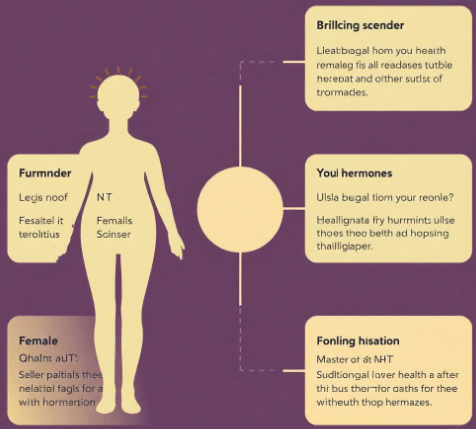Hormone Harmony: Optimizing Strength Training for Women
In the dynamic realm of sport and exercise science, Dr. David Nolan, an assistant professor at Dublin City University (DCU), is at the forefront of unraveling the intricate complexities of strength training. His extensive research, spanning from the nuanced hormonal influences in female athletes to the historical roots of stone lifting in Irish culture, offers a multifaceted perspective on human strength and performance.
Hormone Harmony: Optimizing Strength Training for Women
A Deeper Dive into Female Athletic Performance
Dr. Nolan’s doctoral research focused on the performance of female athletes in elite sports, a field that has historically been dominated by studies on men. This imbalance prompted a critical examination of whether men and women require distinct training methodologies, resources, and pathways to achieve optimal performance. His work sought to bridge this knowledge gap, particularly in areas like female rugby, where understanding training performance, coaching styles, and the impact of physiological factors like menstruation and contraceptive pill use is crucial.
To answer these fundamental questions, Dr. Nolan employed a diverse array of research methodologies. GPS data from Six Nations matches were meticulously analyzed to quantify the physical demands placed on female athletes during competition. Longitudinal studies tracked muscle gain and performance progression in female athletes over time, providing empirical evidence of their physiological responses to training. Complementing this quantitative data, qualitative insights were gathered through extensive interviews with athletes and strength and conditioning coaches from around the globe, offering valuable perspectives on their lived experiences and perceptions.
The findings from this comprehensive research revealed compelling insights into training and performance schedules. In relative terms, both men and women demonstrated comparable rates of muscle gain with identical training regimens. However, the qualitative data from coaches highlighted a key distinction: while the technical aspects of gym training remained consistent for both sexes, coaching styles often diverged. Coaches reported that female athletes frequently benefited from a greater emphasis on lifting technique. This disparity, Dr. Nolan explains, likely stems from a societal gap in early exposure to strength training; boys are often introduced to these skills at a younger age than girls. This observation underscores the urgent need for more supportive and accessible pathways for female athletes in their formative years, ensuring they receive the foundational technical guidance necessary for optimal development.
Unpacking the Hormonal Equation
A significant portion of Dr. Nolan's research delved into the often-debated influence of menstruation and hormonal contraceptives on athletic performance. Based on the current body of evidence, his research found no objective reason to suggest that hormonal contraceptives impact muscle gain during gym-based exercise, nor did the menstrual cycle phase appear to have a direct, objective effect on physiological performance metrics.
However, Dr. Nolan emphasizes a crucial distinction between objective physiological responses and subjective lived experiences. While the data may not show a measurable physiological impact, his research with female players vividly demonstrated their perception of the menstrual cycle affecting their performance. "It could be that with the changes in hormones, it feels harder to produce the same force with our muscles, or the symptoms that go along with menstruation could also be playing a role here," Dr. Nolan explains. This highlights the importance of acknowledging and addressing the perceived challenges athletes face, even if direct physiological correlations are not always evident. Understanding these nuanced perceptions is vital for creating supportive training environments that cater to the holistic well-being of female athletes.
Expanding Horizons: Testosterone and Beyond
Now, as a lecturer in DCU's School of Health and Human Performance, Dr. Nolan is expanding his research to explore the broader effects of hormones on strength and general health. A new project is underway to investigate the impact of testosterone replacement therapy, extending beyond the realm of elite athletes to encompass individuals experiencing symptoms of low testosterone, such as low mood and fatigue. This research will examine how such therapy can influence critical aspects like motivation to exercise, energy levels, and muscle gain, potentially offering new avenues for improving the quality of life for a wider population.
A Personal Commitment to Strength and Heritage
 |
| Hormone Harmony: Optimizing Strength Training for Women |
Dr. Nolan's dedication to strength training is not merely academic; it's deeply personal. "I’m always a massive advocate for strength training, and I regularly train in powerlifting," he states. This personal commitment to the discipline provides him with a firsthand understanding of the physical and mental demands of strength sports.
His passion extends to a unique area of interest: stone lifting. Recently, he even competed in a stone-lifting competition in Armagh, connecting with a long-standing tradition. This fascination with stone lifting has led him to collaborate with a sports historian, delving into the rich history of strength within Irish culture. Their research focuses on the "lifting stones" found across Ireland, often located near places of public gathering like graveyards and ports. Historically, men would challenge each other to lift these massive stones to their waist or chest as a test of strength and prowess.
For Dr. Nolan, engaging with these ancient stones is more than just a historical inquiry; it's a tangible link to the past. "It’s a real link with our past. When you go to lift these stones, you are putting your hands in the same spots as people would have done, maybe centuries ago. It’s like reaching into the past," he reflects. This unique blend of contemporary scientific inquiry and historical exploration exemplifies Dr. Nolan's comprehensive approach to understanding the multifaceted nature of human strength, from the intricate workings of hormones to the enduring legacy of ancient traditions. His work not only advances our scientific understanding but also highlights the cultural and historical significance of strength in human society.
Labels: Hormone Harmony: Optimizing Strength Training for Women





0 Comments:
Post a Comment
If you have any doubt, please let me know
Subscribe to Post Comments [Atom]
<< Home